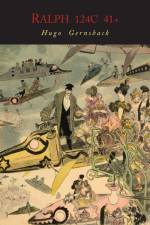Willkommen bei den Tales Buchfreunden und -freundinnen
Jetzt zum Newsletter anmelden und tolle Angebote und Anregungen für Ihre nächste Lektüre erhalten.
Mit Ihrer Newsletter-Anmeldung erklären Sie sich mit unseren Datenschutzbestimmungen einverstanden.Sie können sich jederzeit wieder abmelden.


![Remarks on the Foundation of Mathematics [Bemerkungen Uber Die Grundlagen Der Mathematik] af Ludwig Wittgenstein](https://cdnbackdoor.tales.as/thumbnail/150x225/products/00170/55059/remarks-on-the-foundation-of-mathematics-bemerkungen-uber-die-grundlagen-der-mathematik.jpg)














![The Idea of History [1946 Edition] af R. G. Collingwood](https://cdnbackdoor.tales.as/thumbnail/150x225/products/00163/16451/the-idea-of-history-1946-edition.jpg)
![Mathematics and Plausible Reasoning [Two Volumes in One] af George Polya](https://cdnbackdoor.tales.as/thumbnail/150x225/products/00179/10281/mathematics-and-plausible-reasoning-two-volumes-in-one.jpg)